The man who would be king
The first American in Afghanistan
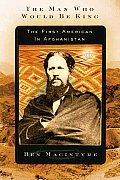 I just finished a fantastic historical biography by Ben Macintyre. It's rather timely given the increasing resistance from the Taliban in Afghanistan. In fact as I write this I'm listening to a BBC report on the problems facing NATO troops as they train the new Afghan Army. And this reminds me of one of my favorite films.
I just finished a fantastic historical biography by Ben Macintyre. It's rather timely given the increasing resistance from the Taliban in Afghanistan. In fact as I write this I'm listening to a BBC report on the problems facing NATO troops as they train the new Afghan Army. And this reminds me of one of my favorite films.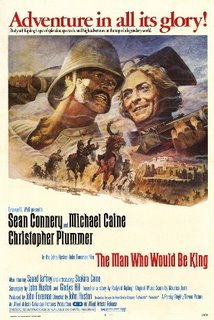 Grizzled and laconic, two British army deserters pause in their amble through the Khyber Pass. With Afghanistan at their feet, they swear off liquor and women until they have conquered its abundant tribes, bandits, and holy men. For many Americans, this scene from John Huston’s epic adventure springs to mind every time I read about US Special Forces and NATO troops riding horse-back into battle against the Taliban.
Grizzled and laconic, two British army deserters pause in their amble through the Khyber Pass. With Afghanistan at their feet, they swear off liquor and women until they have conquered its abundant tribes, bandits, and holy men. For many Americans, this scene from John Huston’s epic adventure springs to mind every time I read about US Special Forces and NATO troops riding horse-back into battle against the Taliban.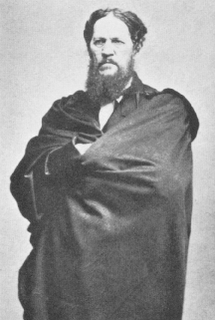 What wouldn’t spring so easily to mind, except for a few Central Asia experts and historians of The Great Game, is the realization that our Afghan campaign is not the first time Americans have intervened in local intrigues there. British journalist, Ben Macintyre, reminds his readers that Josiah Harlan, a Pennsylvania Quaker, was the first American to make his way to Kabul in 1838.
What wouldn’t spring so easily to mind, except for a few Central Asia experts and historians of The Great Game, is the realization that our Afghan campaign is not the first time Americans have intervened in local intrigues there. British journalist, Ben Macintyre, reminds his readers that Josiah Harlan, a Pennsylvania Quaker, was the first American to make his way to Kabul in 1838.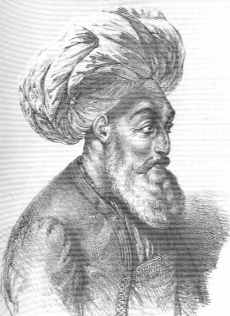 Disguised as a Sufi mystic, Harlan styled himself as a 19th Century Alexander the Great. Within a year, he was commanding the armies of Dost Muhammad Khan, the mighty emir of Kabul. For his successful campaign against northern slave-traders, the grateful emir proclaimed Harlan, Prince of Ghor, Lord of the Hazarahs. His fame, however, was short-lived.
Disguised as a Sufi mystic, Harlan styled himself as a 19th Century Alexander the Great. Within a year, he was commanding the armies of Dost Muhammad Khan, the mighty emir of Kabul. For his successful campaign against northern slave-traders, the grateful emir proclaimed Harlan, Prince of Ghor, Lord of the Hazarahs. His fame, however, was short-lived.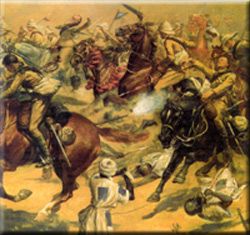 The British invaded Afghanistan in 1839 and greatly annoyed with the free-booting American expelled Harlan. Two years later, the emir’s guerrilla forces massacred 15,000 British troops forcing the British to quit Afghanistan. Returning to America, Harlan published a scathing critique British hubris. Although never widely read outside America, Macintyre suspects that Rudyard Kipling was familiar with the general outline of Harlan’s Afghan adventures. In 1897, he published the short story that would later inspire John Huston.
The British invaded Afghanistan in 1839 and greatly annoyed with the free-booting American expelled Harlan. Two years later, the emir’s guerrilla forces massacred 15,000 British troops forcing the British to quit Afghanistan. Returning to America, Harlan published a scathing critique British hubris. Although never widely read outside America, Macintyre suspects that Rudyard Kipling was familiar with the general outline of Harlan’s Afghan adventures. In 1897, he published the short story that would later inspire John Huston.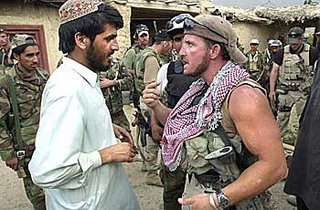 Unlike his later works, his tale of Daniel Dravot and Peachy Carnehan does not celebrate Britain’s civilizing mission in Central Asia. Rather, it frankly warns that the White Man’s Burden in Afghanistan would prove to heavy for the over-reaching British. Today, the US bears the burden of nation-building in Afghanistan.
Unlike his later works, his tale of Daniel Dravot and Peachy Carnehan does not celebrate Britain’s civilizing mission in Central Asia. Rather, it frankly warns that the White Man’s Burden in Afghanistan would prove to heavy for the over-reaching British. Today, the US bears the burden of nation-building in Afghanistan.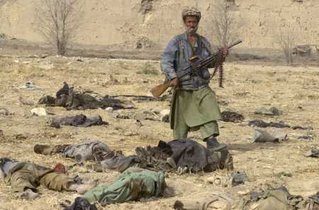 As it stumbles along, with the added weight of Iraq, US policy-makers would do well to consider both the illusions of Josiah Harlan and the sober warning of Rudyard Kipling.
As it stumbles along, with the added weight of Iraq, US policy-makers would do well to consider both the illusions of Josiah Harlan and the sober warning of Rudyard Kipling.
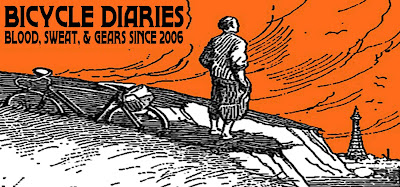
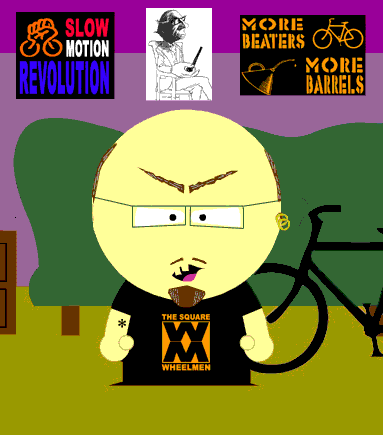





0 Comments:
Post a Comment
<< Home